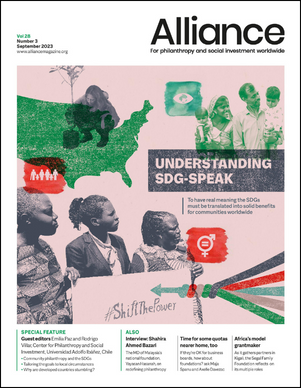There are two competing impulses at work in giving. The relationship between them forms a crucial part of modern philanthropy. To fulfil its potential the Rockefeller Philanthropy Advisors’ ‘New Pluralists’ initiative should be mindful of that.
One of the most challenging issues in modern philanthropy is how to reconcile the opposing norms of concern for the common good with respect for individual difference. This bi-polarity of normative goals arises from the fact that charitable giving grew from two opposing traditions – an aspiration to achieve the common good for a community, on the one hand, and respect for individual choice and pluralistic social goals, on the other.
The pursuit of the common good is the older of the two traditions. Historically, a philanthropic act or donation was viewed as something done on behalf of a whole community – a desire to advance communal well-being through a gift that provided collective benefit. Throughout its classical, Christian and early modern incarnations, the concept of philanthropy thus retained that ancient sense of broad public benefit.
In the early modern era, however, the idea of philanthropy began to take on a more individualistic sense, at first in the form of religiously-oriented charity and, later, coinciding with the rise of the concept of market individualism. By the 17th century, European thought had incorporated this addition into its central conception of society, that is, understanding society as a collection of competitive, rights-bearing individuals. Individuals possessed inalienable rights – and philanthropy became an important vehicle for expressing and defending those rights.
Subscribe now from only £45 a year!
This article is only available for our subscribers
Existing users can login here






